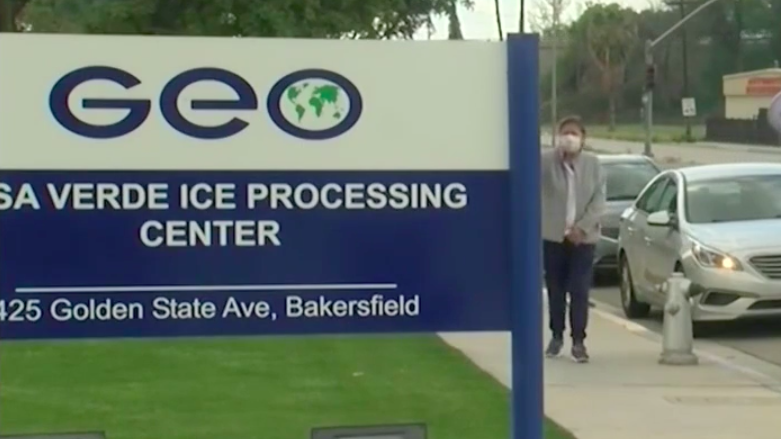While protesters on the streets of America continue to demand justice for victims of police brutality, detainees in detention centers led their own demonstrations in solidarity with those demanding justice for Black lives. According to Prism, the men at Mesa Verde ICE Processing Center in Bakersfield, California, decided to hold a hunger strike after watching the protesters on TV.
Asif Qazi, who has been in the center since February, started the movement when he gave a sheet of paper to a guard announcing the hunger strike.
“We, the detained people of dormitories A, B, and C at Mesa Verde ICE Detention Facility, are protesting and on hunger strike in solidarity with the detained people at Otay Mesa Detention Center," the statement read according to Prism. "We begin our protest in memory of our comrades George Floyd, Breonna Taylor, Oscar Grant, and Tony McDade. Almost all of us have also suffered through our country's corrupt and racist criminal justice system before being pushed into the hands of ICE.”
In a phone interview with Prism, Qazi said almost all of the 70 people in the dorms took part in the strike.
“We support their cause for protesting against a corrupt justice system and corrupt law officials,” Qazi said. “We’re trying to intertwine our causes in one general fight for justice, and we believe ICE falls in the category of corrupt justice officials.”
The Bangladesh native added that he has experienced discrimination while spending most of his life in East Berkeley.
“I saw with my own eyes that police racially discriminate against minorities, and especially Black people, every day,” he said.
Other hunger strikes in detention centers have been reported in recent months over issues within the facilities. According to ProPublica, one of the strikes took place at Hudson County’s ICE detention facility in New Jersey. Detainees said they have struggled to get soap, toilet paper and other hygiene products during the coronavirus pandemic. In an audio recording obtained by ProPublica, an immigrant named Ronal Umaña described the situation.
“We started a hunger strike for them to give us toilet paper and soap — which is the most important — and hygiene supplies, like to clean our hands,” Umaña said, adding that only guards have received hand sanitizer.
The El Salvadorian said officials yell at the detainees for complaining.
“They don’t do anything,” he said in Spanish in the recording. “They only yell at us and tell us that if we complain — that ‘unless we see you get really sick, or you really have a high fever, we can’t do anything with you.’ So we say, ‘If we have a bad fever, and lots of us are sick, we can die here,’ and they say, ‘Well, you’re going to have to die of something.’”
In a statement addressing the hunger strikes, ICE described the movement as "potential internal and external coercion."
In a statement today, ICE is warning of "potential internal and external coercion" designed to get immigrant detainees to initiate hunger strikes.
Citing an "anonymous source," the agency alleges that an attorney instructed a detainee to do so at a California prison … pic.twitter.com/dPZx4O0N8a
— Camilo Montoya-Galvez (@camiloreports) June 5, 2020
Advocates for immigrants detained by ICE have said racism is also a problem in the detention centers. Lisa Knox, an attorney for an Oakland-based organization, said immigration judges often see her Black clients as “violent” or “dangerous.”
“It’s insulting and frankly racist, the way [ICE] implied that these immigrants — and the Black leadership in particular — are violent or threatening; it’s playing into the idea that these are violent thugs,” Knox told Prism.
According to a June 10 KGET 17 news broadcast, the strike has ended.
